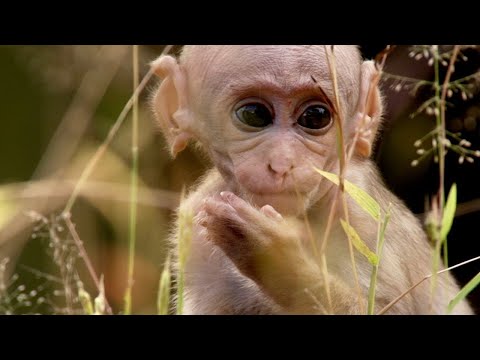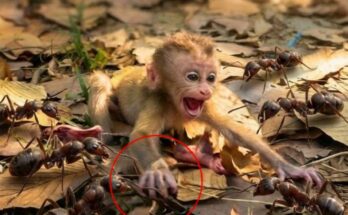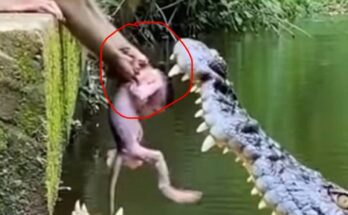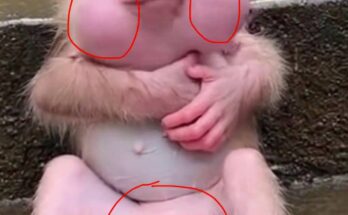
Kiki was only a few months old, full of energy and curiosity. Like all young macaques, she loved to explore, mimic the adults, and tug at anything that moved. Her small body and innocent eyes made her a favorite among the younger troop members. But not everyone was amused by her playful nature.
Among the elders of the troop was a dominant female named Nara. She was older, stronger, and known for her aggressive temperament. Nara had little patience for noisy youngsters, and Kiki’s energetic play often pushed her limits. One sunny morning, while Kiki was jumping between tree branches and squealing with delight, she made a critical mistake—she landed too close to Nara’s resting spot.
Without warning, Nara lashed out, grabbing Kiki by the arm and shoving her to the ground. The other monkeys froze. Kiki screamed in shock and scrambled away, hiding behind her mother. Though not severely hurt, she was clearly shaken. The incident marked an important lesson in macaque social dynamics: knowing your place, and when not to overstep.
Kiki’s mother, Mira, gently groomed her, calming her down. In macaque society, grooming is more than just hygiene—it’s a way to build trust and repair social bonds. Mira’s care helped reassure Kiki, but the lesson stayed with her. The young macaque became noticeably more cautious around elders and started mimicking more submissive behavior when approaching higher-ranking members.
Over the next few weeks, Kiki’s social skills improved. She learned when to play, when to observe, and how to show respect to dominant figures like Nara. These early interactions, though sometimes harsh, were vital to her development. In the wild, social harmony ensures safety, access to food, and future support within the troop.
Interestingly, Nara didn’t remain hostile forever. As Kiki began to behave more appropriately, Nara tolerated her presence more and even allowed her to sit nearby during foraging. This shift showed that even tough elders play a crucial role in shaping the next generation—not just through aggression, but also through setting boundaries.
The challenges Kiki faced are common among macaque infants in the wild. Social intelligence is just as important as physical strength in monkey society. And while moments of violence may seem cruel, they are part of a larger system of learning and survival.
Kiki’s journey is a powerful glimpse into the world of wild macaques, where each lesson—whether taught through kindness or conflict—helps a youngster grow wiser and stronger.


